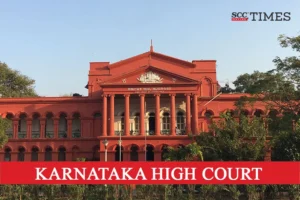Karnataka High Court: While considering the instant petition filed by Asianet News Network seeking quashment of proceedings pending before the Court of VIII Addl. Chief Metropolitan Magistrate, Bengaluru, for the offence punishable under Section 500 of Penal Code, 1860 vis-à-vis allegations of spot fixing against Kannada actress Divya Spandana @ Ramya ; the Bench of S. Vishwajith Shetty, J.*, dismissed the petition stating that petitioners failed to produce any material before the Court in support of their contention that they are covered under the Fourth Exception to Section 499 of IPC. The Court further pointed out that whether the petitioners had any intention to cause dent or damage to the reputation of the complainant is the subject matter of trial and no finding can be recorded on the same by the Court at this stage.
In a private complaint filed by Divya Spandana, it was averred that on 31-05-2013 Asianet News had telecast the news of alleged involvement Kannada actresses in a betting and spot fixing scandal. The programme named ‘Betting Raniyaru‘ (Betting Queens) displayed the photograph and video of the complainant. It was further averred that the news was being telecast in such a manner as if the complainant was one of the persons who was involved in the alleged cricket betting or spot fixing scandal.
According to the complainant, the act of the news network has caused a serious dent on her image and reputation and the people in film industry have made enquiry with her with regard to the correctness of the news that was telecast.
Per contra, the petitioners contended that the alleged offences do not attract any ingredients of libel or slander and that they had telecast the same news that was telecast by other media sources. It was further submitted that the petitioners are covered under the Fourth Exception to Section 499 of Penal Code, 1860 and that they had no intention to defame the complainant.
Upon perusal of the averments made in the complaint and contentions raised by the petitioners, the Court pointed out that Section 499 of Penal Code, 1860 is very clear that whoever by words either spoken or intended to be read, or by signs or by visible representations, makes or publishes any imputation concerning any person intending to harm, or knowing or having reason to believe that such imputation will harm, the reputation of such person, is said to have defamed the person except in cases which come under the exceptions given to the said provision.
The Court pointed out that while the news was being telecast with regard to the cricket betting and spot fixing, the complainant’s photograph and video were being allegedly displayed by the petitioners. The Court also noted that according to the complainant, the petitioners made visible representation depicting as if the complainant was involved in the scandal, knowing very well or having reason to believe that the same is likely to cause damage to the reputation of the complainant. “Therefore, it cannot be said that there is no prima facie case against the accused to stand trial for the offence punishable under Section 500 of IPC”.
The Court further pointed that the petitioner did not produce any material in support of their claim that their alleged defamatory content was covered under the Fourth Exception to Section 499, IPC.
With the afore-stated assessment, the Court found that the petition lacked merits and hence dismissed the same.
[Asianet News Network v. Divya Spandana, 2024 SCC OnLine Kar 19, decided on 04-03-2024]
*Order by Justice S. Vishwajith Shetty
Advocates who appeared in this case :
For petitioners- Sudharsan Suresh, Advocate

